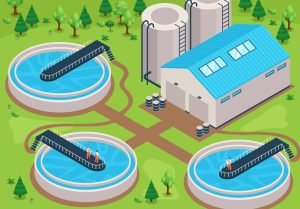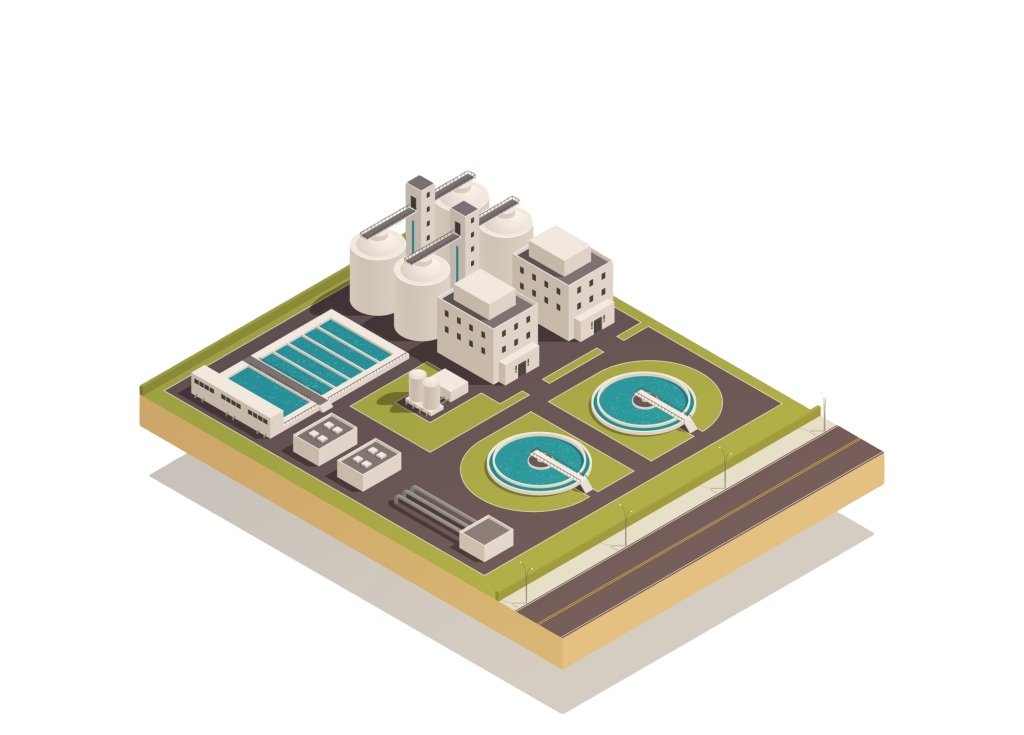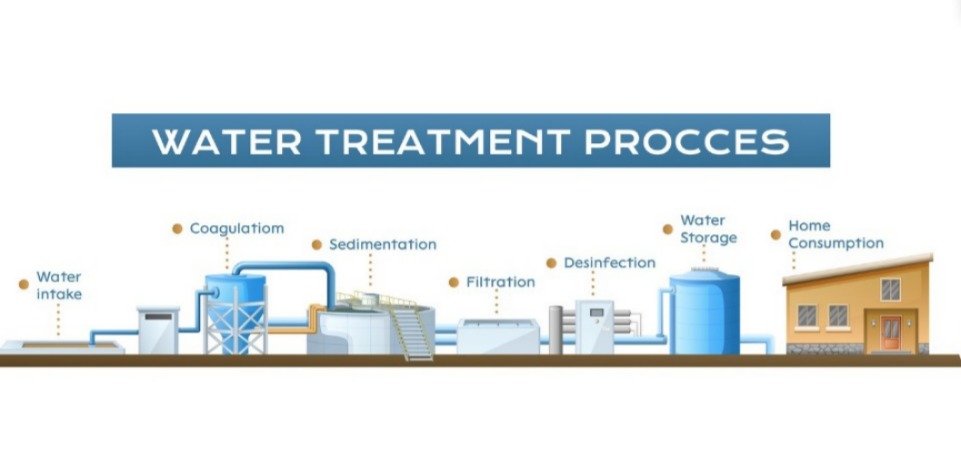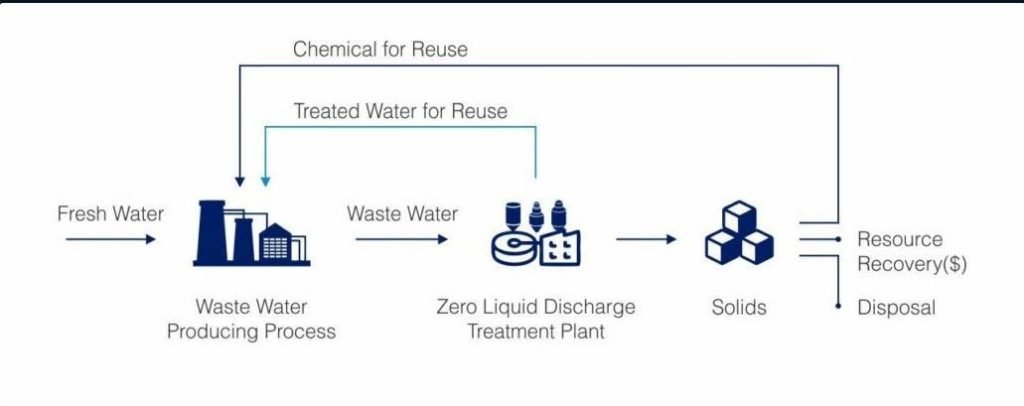Discover the Environmental Benefits of Water Recycling
Discover the benefits of water recycling! Conserve resources, reduce environmental impact, and save costs with this sustainable solution.

What is water recycling?
Water recycling The process of purifying wastewater and reintroducing it back into the system is called water reclamation.
Solids and some organic and inorganic pollutants are filtered from the water during treatment. The type of contaminants in the water and the specifications required for the purified product determine the treatment required.
Water recycling Uses resources to save money and is especially helpful in places with water shortages. It can help organizations meet their environmental goals, save on upstream energy use, and act as a reliable source of water.
The treatment processes involved in water recycling include physical, chemical, and biological treatments, such as sedimentation, filtration, and disinfection.
Advanced technologies like reverse osmosis (RO), ultrafiltration (UF), and ultraviolet (UV) systems are also used to remove contaminants and ensure the quality of the recycled water.
Why Recycle?
Recycling water and wastewater has a positive impact on the environment as it reduces dependence on freshwater supplies and reduces the amount of wastewater released into the environment.
Water recycling is beneficial from an operational standpoint because it reduces waste and provides a continuous supply of clean water.
You can operate a more efficient business that replenishes your resources by recycling the wastewater and wastes you create on-site.
Finally, water recycling provides a sensible means of reducing new water consumption while meeting demand, which is important for manufacturing and industry.
5 ADVANTAGES OF RECYCLING WASTEWATER
The following are just five benefits that your business and our communities can receive from recycling and reusing wastewater and process water:
1. Reducing environmental impact
Sarvo Water and Many companies, many of which are actively developing and implementing technologies for water conservation and water and wastewater reuse, are engaged in cleaning water and separating liquids from solids.
2. Reducing demands and stress on the freshwater supply
One of the main uses of water is agriculture. The burden on freshwater resources used for agricultural uses, such as irrigation of crops,
commercial and residential landscaping, irrigation of public and private golf courses, nurseries, and horticulture, can be reduced by using recycled, treated wastewater.
Could. Treated and recycled wastewater provides an affordable supply that reduces pressure on freshwater resources, including rivers, reservoirs, and groundwater. This is especially important in areas that have experienced drought and water scarcity.
3. Eliminating the need to transport water
On-site reuse and recycling of industrial wastewater is seen as a wise business move that makes enterprises more productive and profitable rather than a disposal issue. Wastewater must be transported to off-site facilities at great expense.
When industrial enterprises recycle wastewater on-site for use in various industrial operations, they can save significant amounts of money on energy, transportation, and disposal.
Since many, many companies require a lot of water, recycling and reusing wastewater is an economical way to meet the massive water demands of your industry.
4. Improving sustainability
The term “sustainability” is widely used but not always clearly understood. Simply put, its goal is to meet present needs without jeopardizing the ability of future generations to meet their own needs.
Sustainability has three components: social, environmental, and economic. So what is the relationship between the fixture and filter press?
Huge Dewatering sludge, or the separation of liquid and solid components of sludge waste, is a naturally occurring, environmentally friendly process.
This allows cost-effective disposal of dry cake with a high percentage of solids, which cannot be recycled and if not handled properly can be hazardous to the environment and future generations, as well as water. Can also be reused.
5. Avoiding expensive non-compliance fees
One of the main benefits of using filtration technologies that aid in reusing and recycling wastewater is that they reduce pollution, which benefits the environment.
Additionally, by putting wastewater reuse strategies into practice, you can easily avoid costly fines for breaking strict wastewater disposal restrictions.
For businesses, profitability, and environmental awareness go hand in hand.
FAQ (Frequently Asked Questions)
1-What is the recycling of water?
Reusing treated wastewater for beneficial uses such as industrial processes, landscape and agricultural irrigation, and groundwater replenishment is known as water recycling.
Recycling water can save money and resources.
2-How can recycle save water?
It turns out that recycling saves water. This is due to the significant water consumption involved in the extraction of virgin raw materials and subsequent production into single-use packaging.
Recycling reduces the demand for resources obtained from virgin sources, resulting in reduced water use.
3-Why can water be recycled?
Recycled water is wastewater that is purified through multiple levels of treatment. Reusing treated wastewater for beneficial purposes such as industrial processes, and replenishing a groundwater basin offers resource and financial savings.
4-What are the 3 benefits of recycling water?
Water recycling helps maintain a constant supply of fresh water as long as it is appropriately filtered and treated to ensure it is fit for use.
Recycled water, which is usually used for non-potable purposes, can be made safe for bathing, washing dishes, and drinking using specific techniques.
5- How clean is recycled water?
Recycled water is safe for all approved uses and does not contain any substances that exceed state and federal drinking water regulations.
To guarantee public safety, recycled water undergoes a three-step treatment process that includes wastewater processing, clarification, chemical treatment, filtering, and disinfection.



